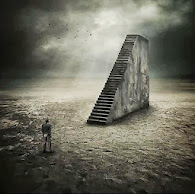 Είδος: Ντοκυμαντέρ
Είδος: ΝτοκυμαντέρΓλώσσα: Γερμανικά
Υπότιτλοι: Ελληνικά
Χρονολογία: 2005 , D/AU
Σκηνοθεσία: Nikolaus Geyrhalter
Διάρκεια: 92'
not such an "artistic" documentary, 3 December 2006
Author: thisidhasalreadybeen from United States
if by artistic you mean concerned only with aesthetics, and beautiful camera work, and gorgeous film, and incredible color. i gotta take issue with saying that the documentary was cold and dispassionate and too concerned with art for art's sake. i would have to say not by the longest long shot. because....because the movie was equally as much about the people producing the food as it was about the production. and thats where much of the heart of the whole movie lies---you just don't notice it right away because there is no sound track, or you don't hear or understand the conversation between people. the isolation of the producers one from each other, for instance. the silence that they work in. those big ear muffs they wear. the deafening noise. the isolating self0-conscousness of being on camera, the movie maker implicating himself. (i definitely saw that a couple of times.) look at that first shot of the woman eating by herself with the mangled finger. an UNBELIEVABLY compassionate image. describing close to the entire world in thirty seconds. Or the next woman, taking her smoking break.
the voicelessness is about isolation. the workers, the animals, the act of filming. the "dumbness" of animals--their inability to speak--and that of the workers on many occasions--is what maybe the movie is all about. (and so the wordless narration is maybe an act of empathy with the animals?? I dunno for sure, but i could make a good argument i was going to write a paper.
and what about the shoeless guy in "The Dominator"?
AND... did notice how, when the ethnic workers are introduced, as opposed to the white northern working classes of Europe, when the immigrant populations are shown at work, the movie slightly changes?? The first and only shot of people at home, and talking in a group, and cooking at home (rice), are Africans. Refugees of wars, no doubt. For a long time in this film,m, I was wondering where the ethnic minorities who make up so much of Europes' working class had disappeared to. Suddenly, mid way, they show up. i don't think it's completely by accident. not completely. Then, later, the Arabic guys are shown taking there lunch break. they too, are eating and talking with each other. taking there break under a tree, close to the ground that they are harvesting from. these shots if anything rubbed me a little bit the wrong way, thinking a little bit of idealizing of the non-European "other" was going on. but the movie redeems itself on this front--or just proves me wrong--when we see a big table of white Europeans eating together. something is most definitely being said about tribalism, and about race, and consumption habits.
i could talk reams about how great this movie is--write a dissertation even like maybe Chris here--but that would totally ruin it. see the movie, its phenomenal. and disturbing..












